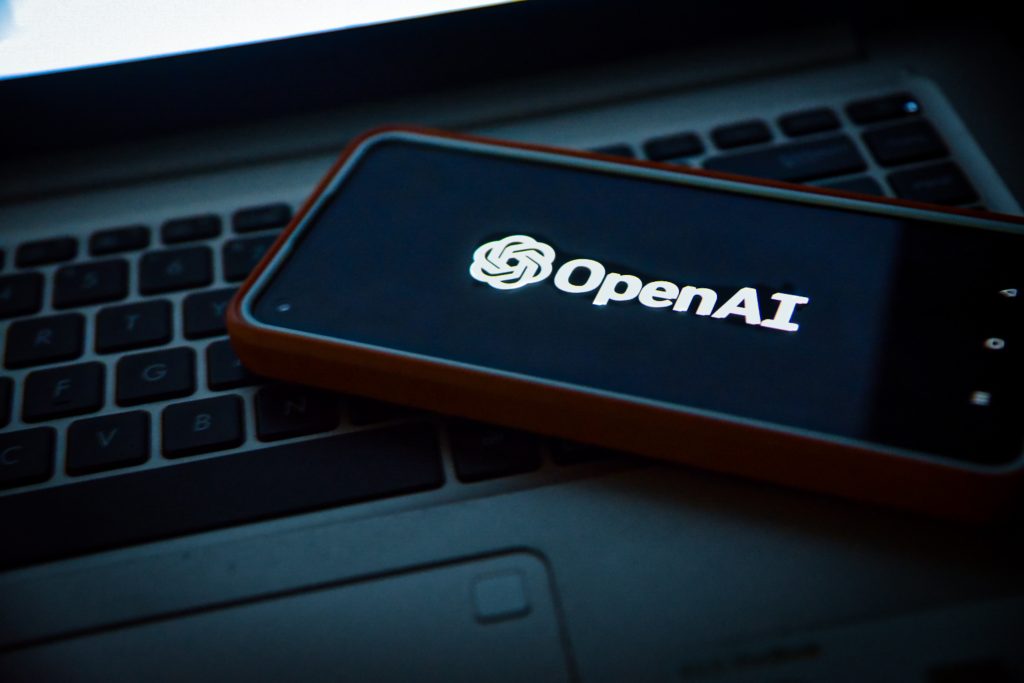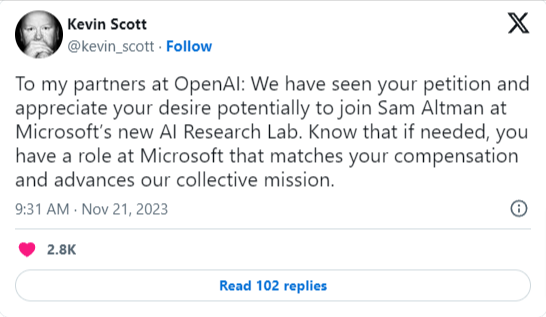The recent upheaval at OpenAI has been dramatic and telling, illustrating the rapidly changing landscape of AI research and its intertwined relationship with industry giants. Until recently, it seemed that former OpenAI CEO Sam Altman was poised to assume leadership of Microsoft’s freshly established AI research division. However, recent developments suggest that Altman may be in the running to reclaim his former position at OpenAI.
According to a Bloomberg report, the OpenAI board, whose recent actions have thrown the company into turmoil, is back in discussions with its ex-CEO about a potential reinstatement. These talks have reportedly included Adam D’Angelo, a board member and CEO of Quora, as well as investors who have expressed their support for Altman’s return to the helm. This marks a change in stance among the board members, who, until Monday, had exhibited a reluctance to engage with Altman.

This board’s decision to re-open communications with Altman comes after a period of deep contention within the company. Only last Friday, the same board had dismissed Altman, leading to significant internal discord. A number of OpenAI workers have voiced their dissatisfaction and threatened to resign en masse unless both the board steps down and Altman, along with former president Greg Brockman, is reinstated. Brockman had resigned in protest following Altman’s exit. In a move that signals solidarity with the employees, they have made it known to the board that Microsoft is prepared to hire the OpenAI team.
To this end, Microsoft’s chief technology officer, Kevin Scott, made a public overture. He confirmed Microsoft’s readiness to absorb any OpenAI employees willing to make the switch, matching their current compensation. Scott’s statement on X, a social media platform previously known as Twitter, reassures OpenAI employees of his company’s support and acknowledges their petition to join Altman at Microsoft’s new AI Research Lab.

While the tech world is rife with speculation, Microsoft CEO Satya Nadella has made his stance clear in recent interviews, expressing his intent to maintain a working relationship with OpenAI. He stresses the importance of either retaining OpenAI’s talent or welcoming it at Microsoft. However, Nadella is adamant about not halting innovation, regardless of the outcome, and has highlighted the necessity for governance reforms at OpenAI in light of recent events.
In the midst of these discussions, the spike in demand for AI expertise has become a central theme. Other tech leaders such as Salesforce CEO Marc Benioff have thrown their hats in the ring, ensuring OpenAI researchers of matching compensation and equity should they decide to join Salesforce. The eagerness to welcome AI experts signifies the high value placed on their skills in the current technology marketplace.
In the interim, the OpenAI board has appointed Emmett Shear, former Twitch chief executive, as its interim CEO. As the company navigates these turbulent times, Shear has committed to hiring an independent investigator to conduct a thorough review of the circumstances leading to Altman’s departure.
In a statement laced with intrigue, the OpenAI board has refrained from fully disclosing the reasoning behind Altman’s termination. Rather vaguely, the board cited a lack of consistent candor from Altman in his communication, which they claim impeded their governance capabilities. Meanwhile, Shear has openly expressed to those within the OpenAI community that he would renounce the interim position if not provided a satisfactory explanation for Altman’s ousting.
The behind-the-scenes dynamics at OpenAI are indicative of more than just internal governance issues—they reflect the high-stakes environment of cutting-edge AI research and development, as well as the fierce competition for top talent among technology leaders. What remains to be seen is how the discussions around Sam Altman’s role will resolve and what this will mean for the future of OpenAI and its strategic partnerships.



